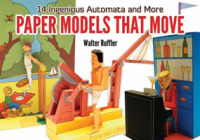Full Description
This book constitutes the refereed proceedings of the 8th ERCIM Workshop on User Interfaces for All focusing on User-Centered Interaction Paradigms for Universal Access in the Information Society, held in Vienna, Austria in June 2004.The 42 revised full papers presented were carefully evaluated and selected during two rounds of reviewing and improvement. The papers are organized in topical sections on implementing user diversity; adaptation and personalization; accessibility and usability of interactive applications and e-services; universal access and design for all - guidelines, standards, and practices; and novel interaction techniques, devices and metaphors.



![鳥獣戯画GIGA message CARD [バラエティ]](../images/goods/ar2/web/imgdata2/49050/4905095743.jpg)




